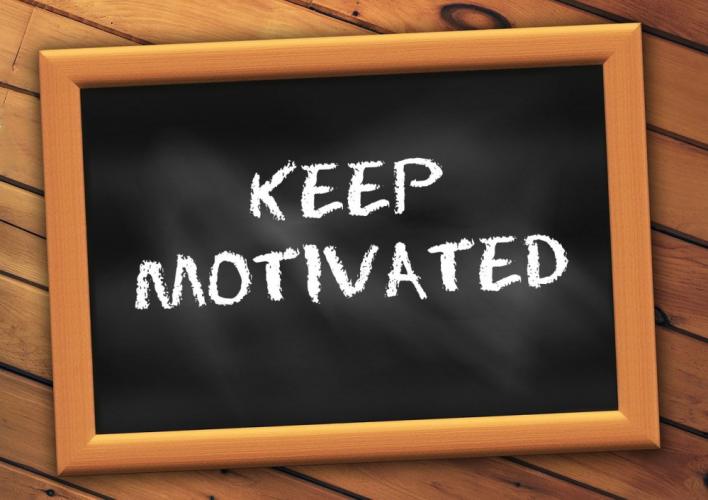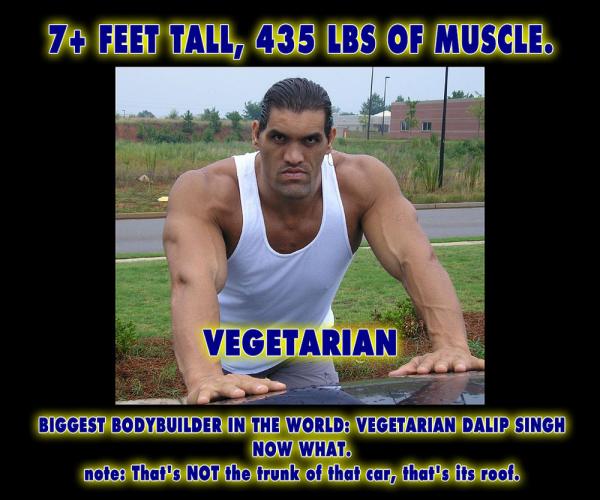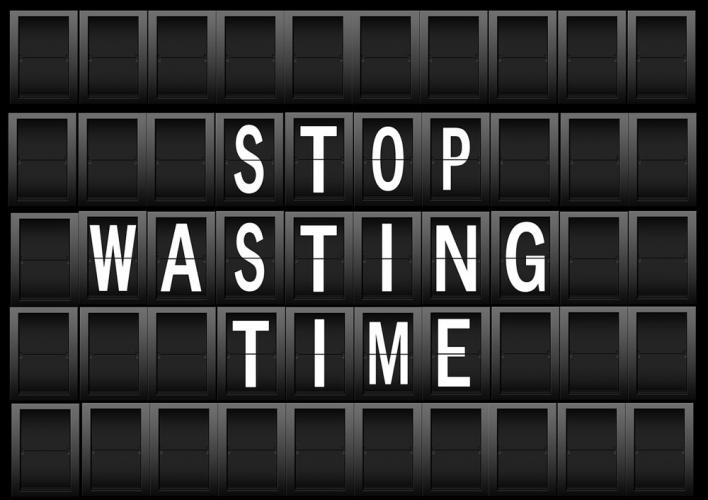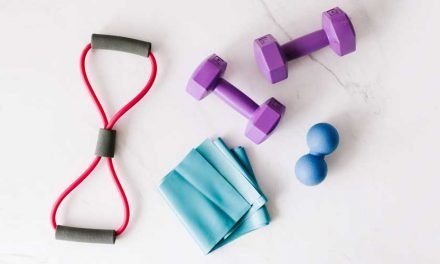We all want muscles. Hell … we all need muscles and that includes women. Ladies, contrary to what you might think, a lot of models don’t have the ideal physiques. Many of them have very little, if any muscles at all. Women need muscles to get the ideal tone. Take a look at athletic women, especially those that are in martial arts. Their muscle tones give them their fantastic physiques.
For guys, well, there’s really no need to discuss it. You already know muscles create the physique.
So what’s the secret?
The truth is, if you don’t already know, there is no secret and that deep down, you probably already know what is required to gain muscle mass. After all, it is somewhat common sense. If you get stints where you work out and do partial curls or ride a stationary bike for a half hour expecting for a miracle to happen, then you either need to keep reading or keep dreaming.
Ok, So What’s Needed Then?
1.Motivation, Dedication, & Consistency.

First and foremost … motivation, dedication, and consistency.
Motivation
Motivation is the process that pushes us towards a goal. It encourages action. In other words, it’s the little guy on our shoulder with the big boot that kicks us in the a$$ to get us moving.
Sure, weights and diets are crucial but if you don’t have the motivation and you attempt your programs half-assed, you’ll be lucky to squeeze in one set and will find yourself eating fish with a side of Doritos. Find out what motivates you. It can be anything from going to public locations during summer months where people are in swimsuits, positive workout partners, photos, and even an occasional compliment when you start getting results. You’d be surprised how a single compliment can get you going. Too many people lose motivation during their fitness regimen primarily due to the lack of results. Once you start noticing the positive changes however, you’ll never want to stop and if you do, you’ll just feel irritated.
Dedication
With motivation comes dedication which is committing yourself to something. Keep a schedule and stick to it. Although that applies to life in general, it is equally important in fitness.
Telling yourself that you don’t have enough time or saying that you’re too tired is an excuse. If you’re motivated and dedicated, you’ll find a way. Whether it’s early in the morning, late in the evening, or during lunch, you’ll find a way to squeeze time in.
Consistency
Be consistent. Once you get into a rhythm, this will come relatively easily but you need develop a pattern and continue to follow it. When you stop for too long, you start losing your drive so unless you’re sick or on vacation, don’t stop for too long. Consistency is key for muscle development. As I mentioned previously, create a schedule and stick with it. Train and train hard, then give your muscles a couple of days to repair and hit it hard again. Rinse and repeat.
2. Weight Training

The benefits of weight training go beyond muscle development and can provide a variety of health benefits. It is a must for both men and women, both young and old and is a key component to muscle building for obvious reasons. A lot of women get discouraged with weight training either due to the intimidation factor with weights or the fear of looking too masculine.
Well, guess what ladies … fear not! Muscle development takes A LOT of testosterone so getting to the point where you start resembling a bodybuilder takes more weight training than your average male. You’ll more than likely just end up with a firm and toned physique, now how bad would that be? So, if you’re stuck doing treadmills and cycles you’ll be happy to know that lifting weights is not going to make you look like a man but rather it will get you in the best shape of your life. Also, it may help you to know that muscle burns more calories than fat, so the more muscle you have the more calories you burn. Just think, no more hours spent on stair masters and treadmills.
Gaining muscle with weights is a relatively simple concept. There’s really no need to complicate it although it takes a lot of work. Lift heavy weights and gain muscle … that’s it. I know, I know, easier said than done but if you follow the basics you’ll carve out your own routine learning what’s most effective for you.
Start off light, especially if you’re a beginner so that you can get comfortable with the routine and perfect the form. Then, gradually working your way up. When you can start pushing 10 to 12 reps, increase the weight. Be consistent and monitor your results and hopefully sooner than later you’ll start seeing results.
3. Eat

With weight training comes caloric intake. If you’re trying to gain muscle mass, you need calories and in order to get calories, you’ll need to eat. You’ll need excess calories … good calories that is … to support your muscle growth. Eat less than what your body requires and you’ll end up losing weight. We’re not telling you to go out and eat a bunch of cheeseburgers but be conscious of what you eat. We’re not talking about a strict, lean diet unless you intend on competing in bodybuilding competitions but eat just enough of the right foods so that your muscles can refuel and develop. Try avoiding refined sugars and processed foods and focus on lien protein and complex carbs.
Top nutrients you’re going to need:
Protein – Protein is an important nutrient to help your muscles grow. Don’t expect to see your muscles grow without it. The amounts vary depending on how active you are but it’s recommended that you should consume about the equivalent to your body weight in grams daily.
There are several sources of protein including eggs, meats, dairy products, seeds, and nuts. Whey protein is another popular source that many fitness fanatics appear to be taking.
Carbohydrates – Carbs are essential as they prevent the body from breaking down protein and helps increase insulin levels. Carbs allows protein to build and repair your muscles. Too much of it, however, will result in fat so don’t consume too much.
Fats – Yes, believe it or not, certain fats are needed to help build muscles. Without having to go into detail and have your eyes glaze over, here are the basics.
Unsaturated fats or essential fatty acids are considered to be “essential” because the body can’t produce these types of fats. Omega-3 and Omega-6 are essential fatty acids that I’m sure you’ve heard of. They benefit muscle growth through elevated hormone secretion, increased insulin sensitivity, and help with protein synthesis.
Sources include certain fish, certain seeds, leafy vegetables, soya and canola oil, and walnuts.
4. Drink Water

If you’re asking yourself whether or not water helps with muscle building, then your common sense answer to yourself should be a resounding, yes! There are a number of benefits that water provides to your body but when it comes to muscle development so it definitely plays an important role.
When you exercise, you sweat and if you don’t you’re clearly not working out hard enough! But seriously … when you sweat, your body loses water and that water you lose needs to be replenished otherwise you get dehydrated which leads to a deficiency in performance. Studies have shown that even a small amount of water loss will result in a loss of muscular strength and endurance.
Depending on your age, gender, and fat content, your body consists of roughly 60% water so needless to say, water is pretty important. So if you’re dehydrated, your energy levels will be low so make sure you drink before, during, and after you exercise.
Another benefit of water is cleansing. Think of it this way … when you bathe, water gives you a good cleansing, washing all of the dirt off of you. When you drink, the same occurs only on the inside. Your body, essentially, receives a cleansing of toxins and waste.
5. Rest
We all need rest and by rest we mean sleep. Rest is part of the recovery process and is an integral part of a training program. Getting enough sleep is important. It gives your muscles a chance to repair themselves and your body a chance to recharge.
How much rest you’ll need is dependent on a few factors. How intense your workout was, the type of workout, age, and possibly … gender. There’s some debate as to who recovers more quickly, men or women. Some studies have shown women recovering slower after strength training and other studies show women recuperating more quickly from fatigue. But who knows how accurate those studies are.
Sometimes, lack of sleep will make you exercise at a lower intensity level than you realize so your results will be minimal and other times it will not overtly effect your performance but it will slow your recovery process.
Try to go to bed early and try to wake up at a set time every morning if possible to get your sleep cycles in order. Once your recovery rate improves, you can push your training intensity to the next level.
Oh … easy on the caffeine before bed.
6. Time & Overtraining

Try to keep your workout time to an hour or less. This means actual workout time, not the length of time you sit in the gym so try not to waste time chatting or staring at yourself in the mirror. Make your workout sessions productive. You’ve seen those idiots who sit at the gym for two hours flexing, chatting, or wasting time exercising at a mid-level intensity. Maximize your time by focusing on your routines and perform each exercise correctly and with intensity. If you’re a beginner, then your work out session will be shorter. Don’t over exert yourself.
For those who throw around reasons as to why it may take much longer either (1) don’t know what their talking about, (2) perform too many routines, or (3) wait way too long in between sets. A popular excuse is that rest times vary from person to person in between sets and routines. Look, if you target an average of two muscle groups a day with 3 to 4 routines performed for each muscle group, 4 to 5 sets each and 10 to 12 reps for each set and that’s on the high end, you should be done in a little over an hour at the most. If you’re pushing two hours or more, then you’re just wasting your time and/or overtraining.
Overtraining is simply put, the point where you exercise so much that rest won’t help your recovery. Believe me when I tell you … overtraining will result in fatigue, frustration, loss of motivation, and worse … a weaker you. You won’t get any results no matter how hard you lift.
So, when people are telling you that you’re always at the gym, you may want to stop and think about what they’re saying.
7. Supplements
 © Photo by: David van der Mark
© Photo by: David van der Mark
You have your essentials and non-essentials. Your non-essentials will consist of some of the supplements that you many think you need to some degree but can really do without. And then you have your essentials, those supplements that you probably should be taking to help with your overall training program. In most cases, one of your more important essential supplements will be multivitamins. Your body requires various vitamins and minerals in order to function properly and you won’t get all of them from a single food source. I don’t care what anyone says, statistics show that majority of people are vitamin deficient and you have to eat a large variety of foods in order to get all of the vitamins and even then you need to make sure you eat enough foods to get the appropriate amount.
Some important supplements that I would consider to be beneficial include Creatine and Protein.
 Protein – It’s essential to rebuilding cells and muscles along with other vitally important functions. You’ve probably heard of or have tried protein shakes, right? Protein in the form of powder is added to the drinks and people usually drink them after an intense workout. Most people can and should get it from a dietary source like fish, dairy products, meats, and chicken but for those who want to intensify their training will probably end up needing more protein and can supplement their needs, usually in the form of protein powders.
Protein – It’s essential to rebuilding cells and muscles along with other vitally important functions. You’ve probably heard of or have tried protein shakes, right? Protein in the form of powder is added to the drinks and people usually drink them after an intense workout. Most people can and should get it from a dietary source like fish, dairy products, meats, and chicken but for those who want to intensify their training will probably end up needing more protein and can supplement their needs, usually in the form of protein powders.
- There are three popular types of powders … soy, rice, and whey.
- Soy is a great source of protein and is the only plant-based protein that carries all of the essential amino acids. There are, however, some debates regarding some of the health benefits with soy. It contains a chemical called Isoflavones that can be beneficial but can also have a negative impact if consumed in high amounts.
- Rice protein powder or the preferred brown rice is another great source, however, it does not possess all of the essential amino acids. It’s suggested that if you decide to take this specific type of protein powder, to mix it with another protein source to cover the missing essentials.
- Whey protein is the more popular of the bunch and the most preferable. You’ll see it mentioned in various fitness magazines and blogs and see a variety of the powders competing for shelf space in your local supplement store. It’s a favorite among fitness lovers because it possesses all of the essential amino acids, low in lactose, and is easily digested.
- Creatine – Creatine is a compound that is produced by our bodies and is also one of the more popular dietary supplements. You can find products mixed with the supplement virtually everywhere. From powders, bars, and pills, people take creatine because of the additional energy it provides for muscles. You may also notice a slight increase in your muscle size due to the fluid that creatine absorbs into your muscle cells.In my humble opinion, Creatine is one of the better supplements and takes a noticeable effect. Depending on your size and the amount you take, you can notice the effects anywhere from 2 weeks to 1 month. If you are performing intense work out sessions where you need the extra energy, then you may want to consider creatine. But don’t be too dependent on it and try to limit the consumption.
Be safe and have a great workout!



 Protein – It’s essential to rebuilding cells and muscles along with other vitally important functions. You’ve probably heard of or have tried protein shakes, right? Protein in the form of powder is added to the drinks and people usually drink them after an intense workout. Most people can and should get it from a dietary source like fish, dairy products, meats, and chicken but for those who want to intensify their training will probably end up needing more protein and can supplement their needs, usually in the form of protein powders.
Protein – It’s essential to rebuilding cells and muscles along with other vitally important functions. You’ve probably heard of or have tried protein shakes, right? Protein in the form of powder is added to the drinks and people usually drink them after an intense workout. Most people can and should get it from a dietary source like fish, dairy products, meats, and chicken but for those who want to intensify their training will probably end up needing more protein and can supplement their needs, usually in the form of protein powders.![A List of the Best Work Out Videos [TOP 4]](https://weightathome.net/wp-content/uploads/2015/12/fitness-videos.jpg)



